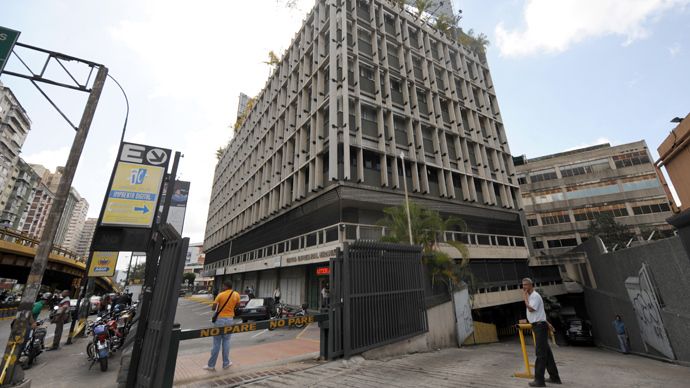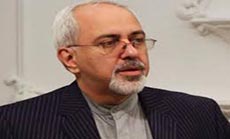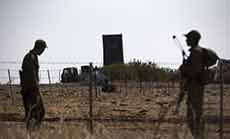Eye on the Enemy: No U.S. support for ’’Israel’’

Ya'alon: No American Sanctions on Iran this year
"Israel" Hayom
Deputy Prime Minister Moshe Ya'alon complained that the U.S. administration won't be imposing tougher sanctions on Iran due to internal political considerations, he said, "While the Iranian issue is on top of the international priorities, and France and U.K are leading a full campaign against Iran, in which they'll mainly impose sanctions on Tehran's oil industry and its Central Bank -the White House has taken another turn."
"The Senate passed a resolution by a vote of 100 to 0 to impose these sanctions, but the U.S. government is hesitating for fear of raising oil prices, probably because this is an election year. In this sense, this is certainly a disappointment," Ya'alon said.
Meanwhile, senior diplomatic officials claimed Sunday night that the EU would probably decide on Jan. 23 whether to pass "crippling sanctions" against Iran's oil exports. "It is symbolic that precisely on International Holocaust Memorial Day a decision will be made that will perhaps change the gloomy picture vis-a-vis Iran," Ya'alon added.
------------------------------------
U.S. to threaten Iran by Military Strike, Netanyahu says
Ma'ariv
PM Benjamin Netanyahu sees Iran's economy wobbling. In an interview with the Australian newspaper, he said that the new economic sanctions against Iran were imposed to halt the ongoing nuclear program, but to have an effect, the United States should also put the military strike as an option.
Regarding the sanctions on Iran's central back, Netanyahu stated," for the first time I see Iran wobbling." "If these sanctions are coupled with a clear statement by the international community, led by the US, to act militarily to stop Iran if sanctions fail, Iran may consider not going through the pain," he added. "Iran's economy is showing clear signs of stress".
------------------------------------
Cousins of the Left
Amos Gilboa - Ma'ariv
Military Intelligence Directorate was required to read an article named "numbers game", written by a young researcher who had once worked in the CIA. The researcher was sent to Vietnam by his superiors to investigate the validity of the casualty numbers of "Vietcong" - the guerrilla force who fought against the Americans - as the U.S. forces headquarters in Saigon published them every month.
Published casualty numbers increased each month and made Washington feel hopeful, and that within a very short time Vietnam War will end with full victory. The findings, which were hidden, were amazing. They showed that the American military command data were false.
How so? The researcher showed how the methods of the victims' data were presented: Killed Vietnamese peasants were considered as soldiers in Vietcong; female peasants were killed to be counted as "Vietcong Supporters", and various finagling vastly increased the number of Vietcong casualties. Reality on the ground proved the righteousness of the study and how the "numbers game" deceived the decision makers in Washington.
I remembered that when I saw last week the polls of the Knesset election results and some of analysis of them in the print media. The phenomenon that mostly caught my eye was the division into blocs. Votes were as follows: "the Right" - Likud, Lieberman, Shas and fundamentalists - 61 seats, "the Left - Center" - Labor, Kadima, Lapid, Meretz and Arab parties - 54 seats, and Aryeh Deri, with five seats, neither right nor left.
I ask a simple question: Why Arab parties are included in the Left - Center? This is not the first time. For years the media has placed the three Arab parties in the Left. Why? What milk is mixed with meat? What the hell is common between Azmi Bishara's party and the party of Livni and Mofaz? What is common between the Arab parties that simply uphold the right of return and the evacuation of all settlements, with Kadima and Labor?
What is common between at least two Arab parties, which refuse the State of "Israel" to be the homeland of the Jewish nation, and Lapid? What do left Zionist party leaders have in common with those who openly support Iran Hamas and Hizbullah? Nothing!
So why the Arab parties are always included in the left bloc and never stand alone, in a spectral Arab bloc, for example? I think that's the answer: to present a false picture and create a false twisted impression that the Left bloc is large and with little additional efforts it will match what is called "the Right". There is a big difference if the displayed number is 54 or 43 seats.
And here is another innocent question: why the bloc is the left - center? Why we have not a right - Center bloc? What Lapid cannot be with the Likud coalition? Livni cannot sit at a table next to Benjamin Netanyahu government? And anyway, why Deri doesn't join one of the blocs? Again the answer is the desire to present a false picture, upholding the power of the left by the "numbers game" and giving a false hope for those who want to see Bibi's defeat.
The division into left and right is anachronistic, and we need new analysis and new definitions, but that's another topic. Finally, like in Vietnam, reality will reveal the truth not false representations.
-------------------------------------
No U.S. support for "Israel"
Barry Rubin - Ma'ariv
Historically, over the last forty years "Israel" was connected to U.S. support. There is no doubt that there have been periods of conflict, some caused by the U.S. and others by "Israel", but they lasted for a short time. Ultimately, these were not based on fundamental differences, but on tactical differences.
Today the essential problem between the two countries is not related to bilateral issues, or even in the "peace process", but to the U.S. President and his advisers' diagnosis of the world and the Middle East. Firstly, Obama administration does not view political Islam as a threat. The administration does not believe that the Turkish system, the Muslim Brotherhood and Hizbullah pose a threat to "Israel" or the rest of the interests of the West. Al-Qaeda is the only enemy that must be confronted.
From an "Israeli" point of view, a strategic situation grew serious. The peace agreement with Egypt is not a proof. In the new emerging situation, Egypt might not prevent the transfer of weapons to the Gaza Strip, the border and the gas pipeline are no longer safe, and in case of a conflict, then Egypt would have to defend Hamas. Obama, being unable to see these risks, is supporting the Muslim Brotherhood and other Islamists in Tunisia, in Libya and Syria.
Secondly, it can be argued that according to the concepts of the President that the main coalition of the United States in the Middle East is with Turkey not with "Israel". Obama has forgiven Turkey's sabotage of the sanctions against Iran, its support for movements like Hamas and Hizbullah and its hostility toward "Israel", but he did not take a similar tolerant approach toward "Israel".
It seems that Obama does not understand the real need to maintain the credibility of the United States in the Middle East and support its allies. "Israel" is not suffering alone from this situation, but also anti-extremism forces such as Saudi Arabia, Jordan and the opposition movements in Iran, Lebanon, Turkey and Syria. The problem here doesn't lie in the current administration of "Israel". A leadership change will not affect these subjects. Regardless of the pro-"Israel" remarks by Obama, which allegedly allay his appalled "Israeli" supporters, for the first time in modern history "Israel" has no master from the great powers.
--------------------------------------------------------------
If the Iranians killed "Israeli" Nuclear Scientists...
Avner Cohen - Haaretz
"Israel's" official response to news on the assassination last week of Iranian nuclear scientist Mustafa Ahmadi Roshan was a deafening silence. The unofficial response was a wink. The day before, "Israeli" Army Chief of Staff, grinning slightly, spoke about "unnatural events" that were delaying Iran's nuclear program. The "Israeli" self-congratulation was obvious.
As usual, the "Israeli" public did not question the wisdom of assassinating the Iranian scientists. Such questions are seen as treason in the "Israeli" culture that sanctifies security. If the hit was successful - the scientist was eliminated and the assassins disappeared - you don't ask questions.
But U.S. Secretary of State Hillary Clinton insisted on saying it directly: She categorically denied all U.S. involvement in the latest assassination and even declared that the United States emphatically opposed the assassination of scientists. Her announcement was received with shock and even dismay in "Israel". Where is the wisdom in making this kind of public statement, some asked; and in any event, it's hypocritical in light of the fact that President Barack Obama has killed more terrorists using unmanned aerial vehicles than his predecessors.
In order to understand the American criticism of the scientists' assassinations, one must ask the questions that "Israelis" avoid: Do such killings do real damage to Iran's nuclear program? What could be the negative results of the assassination policy? Is it right to create a situation in which scientists become pawns in a war of assassinations and counter-assassinations (first nuclear scientists and then perhaps scientists in general and senior officials)?
Regarding efficacy, we know that Iran's nuclear program, based in Natanz, is an enormous project employing hundreds of scientists and thousand of technicians. It is hard to imagine that taking out a single scientist, however skilled and high-ranking, could damage the entire project enough to cause a significant delay. The project has long ago passed the point where the fate of any one individual could affect it.
Not only will killing individuals fail to significantly delay the project or cause its leaders to amend their political and strategic goals, it will almost certainly have the opposite effect: It will only add to Iran's determination to carry on. And to keep their scientists from becoming demoralized, the Iranians will do everything possible to make good on their promise of revenge.
If there are assassinations on one side, it must be assumed that there will be assassination attempts on the other side too. If Iranian scientists are not immune, then neither are scientists from the countries suspected of carrying out the assassinations. While Iranian officials had previously pointedly refrained from accusing any particular country, within hours of the attack this time, the government in Tehran and the Iranian media named "Israel" and the United States as the responsible parties, and promised revenge.
"Israel" may have rejoiced at the news of the hit, but let's consider how senior members of "Israel's" scientific community, especially the nuclear scientists, would view the assassination of scientists on the faculties of well-known academic institutions. (Most of the senior scientists in Iran's nuclear program also have academic posts.) They would probably have reservations about the wisdom of expanding the shadow war to the scientific community.
Anyone who legitimizes the assassination of scientists in Tehran jeopardizes the personal security of scientists on the other side. The next phase of the assassination war is liable to turn international scientific conferences into arenas of assassination.
It is entirely possible that the damage caused by the assassinations far outweigh the benefits they bring.
Source: Hebrew newspapers, translated and edited by moqawama.org




